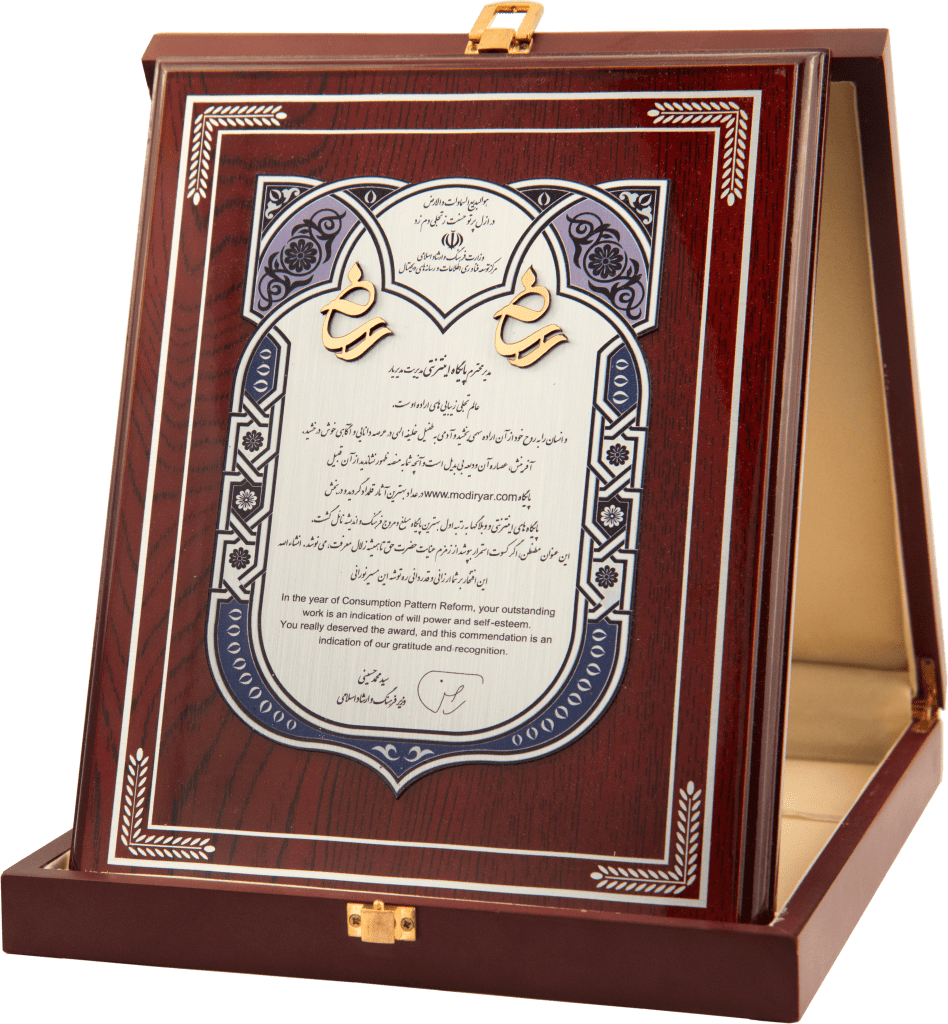پیشرفتهای فناوری نانو میتواند بر تمامی زمینههای اقتصادی تاثیرگذار باشد
چکیده
فناوری نانو فرصتها و چالشهای جدیدی را برای دولتها به وجود آورده است، که برای رسیدن به این فرصتها و مقابله با چالشهای بالقوه، به یک رویکرد مسوولانه و هماهنگ نیاز است. OECD نقش خود را در این فرایند به خوبی ایفا کرده و نهاد تحقیقاتی بزرگی را تشکیل داده است.
متن کامل
پیشرفتهای فناوری نانو میتواند بر تمامی زمینههای اقتصادی تاثیرگذار باشد. تعداد محصولات و تنوع نانومواد و نانوسیستمها در دهههای آینده به سرعت در حال افزایش است. به همین ترتیب، فناوری نانو فرصتها و چالشهای جدیدی را برای دولتها به وجود آورده است، که برای رسیدن به این فرصتها و مقابله با چالشهای بالقوه، به یک رویکرد مسوولانه و هماهنگ نیاز است.
OECD نقش خود را در این فرایند به خوبی ایفا کرده و نهاد تحقیقاتی بزرگی را تشکیل داده است. تحت نظارت کمیتهی سیاستگذاری علم و فناوری1(CSTP)، یک گروه تحقیقاتی در زمینهي فناوری نانو2(WPN)، در ماه مارس 2007 تشکیل شد. هدف این گروه، ترویج همکاریهای بینالمللی است که وظیفهی آن تسهیل فرایند تحقیق، توسعه و تجاریسازی فناوری نانو در کشورهای عضو و اقتصادهای غیرعضو است.
| این گروه تحقیقاتی در اولین نشست خود، شش پروژهی زیر را برای رسیدن به این اهداف، معرفی کرد که عبارت بودند از: 1. شاخصهای آماری، با هدف بررسی روندهای فناوری نانو بر اساس شاخصهای آماری موجود. با این حال سیاستگذاران به شاخصهای دیگری نیاز دارند و چارچوبی برای توسعه و گردآوری شاخصهای جدید در نظر میگیرند. 2. تاثیرگذاری بر محیط کسب و کار و شرکتها، که با مطالعات موردی در مورد زمینههای کاربردی و کشورهای مختلف، مکمل فعالیتهای آماری است. این پروژه به تحلیل اثرات ناشی از فناوری نانو و محیط کسب و کار میپردازد و از این طریق چالشهای جدید در عرصهی کسب و کار شناسایی میشوند. 3. همکاری تحقیقاتی بینالمللی، جهت تسهیل همکاریهای تحقیقاتی در این زمینه، که از طریق زیرساختهای تحقیقاتی موجود و توافق نامههای جهانی علم و فناوری صورت میگیرد. 4. توسعه یافتن و تعهدات عمومی، با هدف ترویج تبادل تجربههای عمومی از طریق پرسشنامهها، مطالعات موردی در کشور و مجموعهای از کارگاههای آموزشی. 5. گفتوگوی سیاسی، با هدف تسهیل سیاستگذاری و توسعهی کلیهی فعالیتهای WPN. این مورد نیز بر اساس پرسشنامه و سایر دادهها صورت میگیرد که منعکسکنندهی اهداف سیاسی و چالشهای موجود در کشورها است. 6. فناوری نانو و آب، که بر کاربرد فناوری نانو در تصفیهی آب و موانع موجود در این زمینه تاکید دارد. در حال حاضر، تصفیهي آب یک چالش عمدهی جهانی به ویژه برای کشورهای در حال توسعه محسوب میشود. در دومین نشست این گروه تحقیقاتی، به طور خاص، پروژههای شاخص آماری (پروژهی A) و تاثیر فناوری نانو بر محیط کسب و کار (پروژهي B)، پیشرفت خوبی داشتند. در این نشست که با برگزاری یک کارگاه در زمینهي شاخصهای آماری فناورینانو همراه بود، دسترسی به این شاخصها، همچنین چالشها و فرصتهای موجود بررسی شدند. نشست سوم WPN، به ارائهی نتایج اولیهی برخی از این پروژهها اختصاص داشت. این نشست شامل یک کمیتهي راهبردی برای پروژهی D و یک گروه کاری برای پروژهی A بود. در این جلسه، کارگاه آموزشی پروژهی B توسط کمیتهي راهبردی سازماندهی شد. همچنین، کارگاههای دیگری جهت پشتیبانی از پروژههای B، D و E در نظر گرفته شدند. به طور کلی، وظیفهی گروه تحقیقاتی فناوری نانو، تکمیل سایر فعالیتهای OECD است. برای مثال، گروه تحقیقاتی نانومواد تولیدشده، در سپتامبر 2006 آغاز به کار کرد و به دنبال همکاریهای بینالمللی در زمینهي سلامتی و ایمنی محیطی ناشی از نانومواد تولیدشده است.منبع: http://nano-atu.ir/NewsPage.php?News_Id=78 منابع: [1] Committee on Scientific and Technological Policy |
OECD Work on Nanotechnology
This page is directly accessible at the following address: www.oecd.org/sti/nano
Nanotechnology is the set of technologies that enables the manipulation, study or exploitation of very small (typically less than 100 nanometres) structures and systems. Nanotechnology contributes to novel materials, devices and products that have qualitatively different properties. Like information technology, nanotechnology advances have the potential to affect virtually every area of economic activity and aspect of daily life. The number of products and the diversity of nanomaterials and nanosystems are predicted to increase rapidly in the coming decade as a result of continuous innovation in many sectors.
Nanotechnologies pose new opportunities and challenges to governments. Nanotechnologies are likely to offer a wide range of benefits, including in helping address a range of societal and environmental challenges, e.g. in providing renewable energy and clean water, and in improving health and longevity, as well as the environment. However, unlocking this potential will require a responsible and co-coordinated approach to ensure that potential challenges are being addressed at the same time as the technology is developing.
OECD is playing its part in this process and developing a large body of work. Under the Committee on Scientific and Technological Policy (CSTP) a Working Party on Nanotechnology was established in March 2007. The objective of this Working Party is to promote international co-operation that facilitates research, development, and responsible commercialisation of nanotechnology in member countries and in non-member economies. Click here for slides describing the objective, structure and activities of the Working Party.
The Working Party has initiated six projects to achieve its objectives:
Indicators and statistics, aiming at providing an overview of nanotechnology trends based on available comparable indicators and statistics, while identifying policy makers needs for further indicators, and establishing a framework for the development and collection of new indicators and statistics.
Impacts on companies and business environments, which complements the statistical work with a large set of company case studies across different application areas and countries. It analyses the impacts and business environment of nanotechnology to identify possible new challenges for the business community.
International research collaboration, designed to facilitate research collaboration in the field by mapping available research infrastructures and S&T agreements globally.
Outreach and public engagement, aiming at promoting the exchange of experience in outreach and public engagement through questionnaires, possible country case studies and a set of workshops.
- A conference and WPN workshop on this topic will be held back-to-back on 30 and 31 October 2008 in Delft, Netherlands (click here to download the programme, updated 17 October). An optional visit to the Faculty of Applied Sciences of Delft University will be arranged on the afternoon of 29 October (click here for the schedule).
For further information about these events and registration to attend, please contact Jacqueline Mout-Leurs at the Dutch Ministry of Education, Culture and Science.
Policy dialogue, aiming at facilitating a policy dialogue and help develop an overall synthesis of the WPN work. It relies on a questionnaire and other material to highlight policy responses and challenges across countries, combining this with workshops dedicated to specific policy themes.
Global challenges: water, which focuses on the contribution of nanotechnology to the purification of water and the barriers that will need to be addressed. The purification of water is a key global challenge, especially for developing countries.
Click here for an update on the Working Party’s 2nd meeting held in November 2007. Click here for an update on the Working Party’s 3rd meeting held in April 2008.
The work of the Working Party on Nanotechnology complements other activities underway in OECD. The OECD Working Party on Manufactured Nanomaterials was established in September 2006 and is looking at international co-operation in health and environmental safety related aspects of manufactured nanomaterials.
In essence, by working together, member countries will better understand the potential challenges and opportunities related to nanotechnology so that they can support the responsible development of this technology.
Last updated: 17 October 2008







